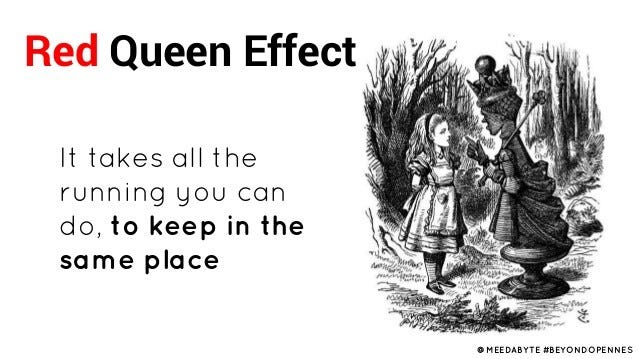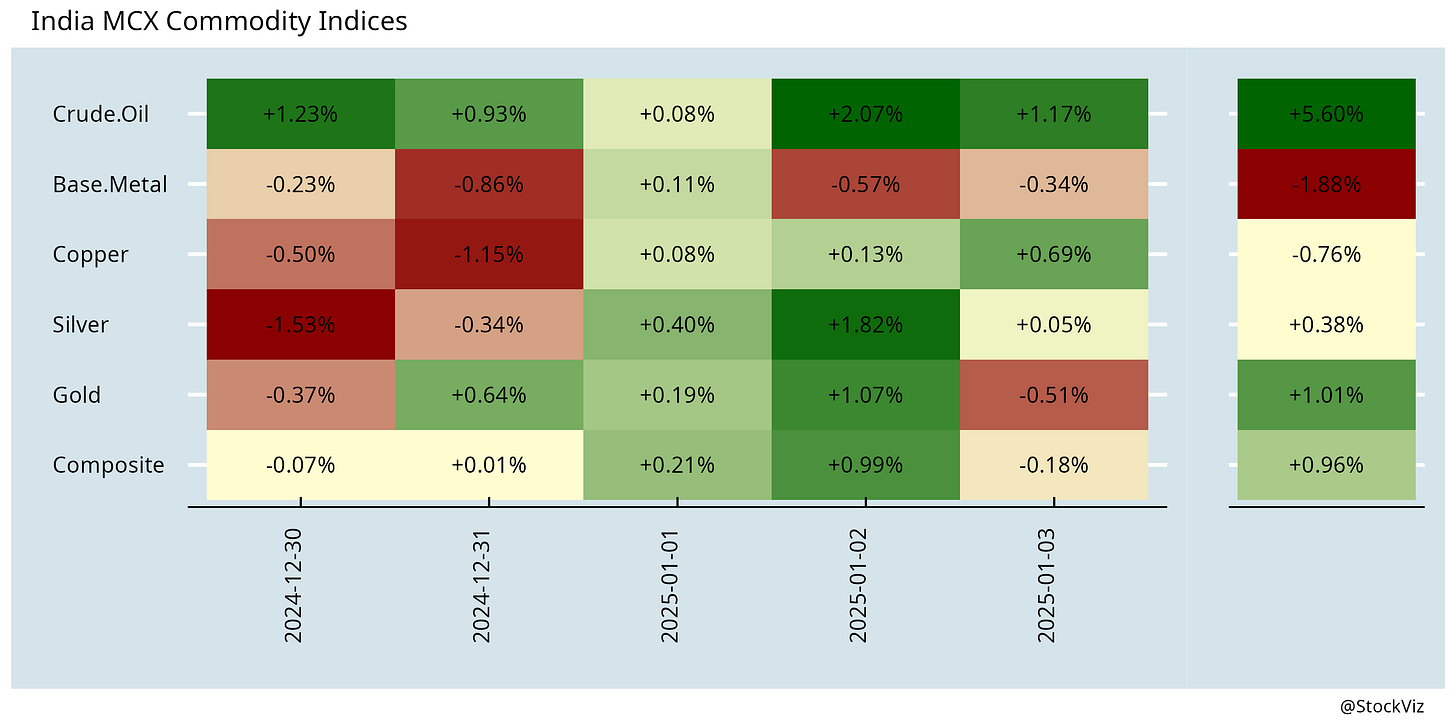Game Selection
The Red Queen Effect
Narayana Murthy, the co-founder of Infosys, got a bit of flak last year for advocating a 70-hour work week. While most criticisms revolved around work-life balance, what was missing was that most of the time, people find themselves in organizations that simply don’t reward that kind of “hard work.” And this can be generalized to entire businesses where working harder is simply not worth it. Most jobs and businesses have a negative incremental return on invested capital. The smart thing would be to channel the effort into areas that actually reward the work being put in.
Spend 70-hours a week working on yourself and pick the right game to play.
We are always on the lookout for strategies for reducing momentum drawdowns. We might have found something: Intra-Stock Correlation and Momentum Returns
Markets this Week
More here: country ETFs, fixed income, currencies and commodities.
Links
Research
Babies and the Macroeconomy (NBER)
Swift economic change may lead to both generational and gendered conflicts that result in a rapid decrease in the total fertility rate.
Momentum and Factor Momentum: A Re-Examination (SSRN)
We show that the momentum factor remains a unique and irreplaceable factor. Firm-specific components, not non-momentum factors, are the primary drivers of momentum returns.
The Holiday Effect (SSRN)
Our results show that the pre-holiday effect exists for the Asian and North American markets. Particularly for Asia, returns for days prior to holidays are almost seven times higher than on regular days. We find post-holiday effects in Europe and North America. Returns for these days are accounted for as three times higher than a normal trading day. We do not find effects for the South African and South American markets.
The Day of the Week Effect (SSRN)
The most common effects are the negative return effect on Mondays and the positive return effect on Fridays.
News Complexity and Short Sellers (SSRN)
Stock return predictability of shorting flows increases with news complexity.
Investing
India
Rahul Gandhi fighting the BJP or his own party? (thehindubusinessline)
Rich Indians, having emotionally seceded from their country for some time now, are moving bag, baggage and business out of India, joining an elite international set. (newindianexpress)
Taiwan introduces new visa programs to attract skilled Indian workers (economictimes)
Gold loan non-performing assets — or loans defaulted by borrowers — of banks and non-banking finance companies had risen 30% to Rs 6,696 crore as of June 2024, from Rs 5,149 crore just three months ago. (indianexpress)
Fewer tourists are visiting India now. Over the last decade, we have begun to take the stand that even if foreign travellers do not want to come, we don’t really care. Even Indians are increasingly avoiding our tourist destinations. (theprint)
Most people operating in India today don’t complain about import taxes so much as they do about non-tariff barriers to trade. In particular, companies are flummoxed by a new weapon in the bureaucrats’ arsenal they call “Quality Control Orders.” (economictimes)
A lot of countries became rich because they innovated first and set norms afterwards. Slave labour preceded human rights. Copying preceded patents. Empires preceded self-determination. Mercantilism came before multilateral free trade.
More recently, artificial intelligence startups swallowed all the content on the internet before the world woke up to data ownership rights. Ergo, it is unlikely that a country can become a world leader by following the rules set by incumbents.
India must go beyond economic efforts to dodge a middle-income trap
row
Chinese hackers used broad telco access to geolocate millions of Americans and record phone calls. (politico)
China-backed hackers breached US Treasury workstations (cnn)
KTM, Husqvarna, and several e-bike brands all face mounting debts after slow sales and rocky launches. (thedrive)
Diamonds are increasingly commoditized—to the point that you can make them in your own home. (wired)
Odds & Ends
AI tools will soon be able to replace human lectures in several subjects. (newindianexpress)
Alcohol Consumption is the Third Leading Preventable Cause of Cancer in the United States (hhs)
Happiness keeps increasing with income, far beyond expected. (wharton)













